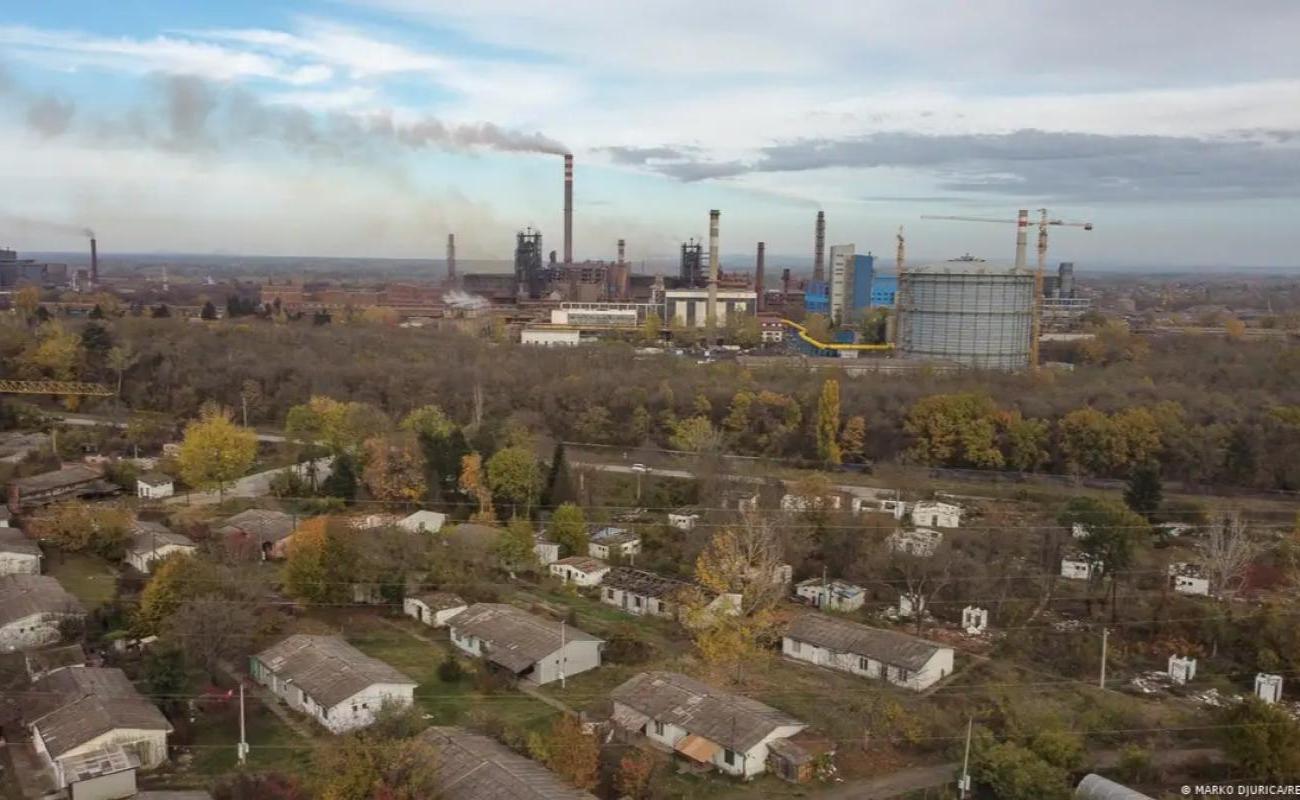Ironworks in Smederevo: Three villages against China

In Smederevo and its surroundings, Chinese buyers were hailed as the saviors of stumbling ironworks, writes the German newspaper Welt. Production is higher than ever, but with it came the toxic red dust that the locals are protesting against.
"Red dust covers everything. Access to garages, garbage cans, gutters and a small slide of ten-year-old Marta", begins the report of the weekly edition of the newspaper Velt from the village of Radinac near Smederevo. The text is entitled: "Three villages against China".
Over this village rise the chimneys of the ironworks, spewing out red dust. "I don't want my family to live in this filth," says Zoran Stojanović, who owns the house. "Red and black dust fly through the air every day. We can't breathe, we have problems with allergies, nostrils and throat.
Velt reminds that the "loss-making" steel plant was bought seven years ago by the Chinese group HBIS, one of the largest steel producers in the world.
"It was an important investment, even Chinese President Di Jinping visited the plant," Welt writes. "Thousands of citizens, among them many iron factory workers, applauded and celebrated Si."
As stated, the relief was great because it was promised to preserve five thousand jobs and expand production. This came after bad years for the ironworks.
"After the acquisition of HBIS, Western steel producers warned about cheap dumping steel from Serbia. Now the expanded production also worries the locals around the plant," writes the conservative German newspaper.
"There has always been dust, but in the last five years it has been a disaster," Stojanović, who has lived in Radinac since 1987, tells them. He says he is not against the factory but against the dust. It is similar in two other neighboring villages.
The reporter also talks with Nikola Krstić, an activist from the "Fortress" Movement. Krstić says that they gave the red dust for analysis because the iron company itself hides the data. He claims that the dust contains heavy metals such as lead and cadmium, which are deposited in the body and soil.
Krstić says that the criminal charges against the iron factory have gone to waste, and that the activists are planning to go before the European Court of Human Rights. HBIS did not respond to Velt's inquiries.
The paper states that the ironworks is the most important employer, on which 25,000 jobs in the region depend, and that it is the most profitable exporter in the country. "It is not surprising then that there are threats against Krstić, who is the engine of the protest. "He received death threats and occasionally dozens of hostile calls a day," the newspaper writes.
Activists believe that the authorities in Belgrade are to blame. The Chinese, says Krstić, must produce in their own country while taking care of ecology. "They do what they want here because the Serbian state allows it," he says.
Velt writes: "In fact, the Government classified some Chinese investments as projects of national importance. There, ecological standards and other regulations apply only to a certain extent."
The text states that local resistance also exists in the mining town of Bor. "There, the Chinese owner of the copper mine and smelter has greatly increased production. Environmental consequences followed: lead, arsenic and copper get into the water. The Serbian Ministry of Health warns that the death rate is higher than elsewhere, and that deformities and tumors are more likely in newborns."
According to Velt, some political scientists in Serbia say that investors from China are "to blame" for the formation of environmental movements in Serbia.
Activist Nikola Kristć tells the journalist that he hopes that environmental movements will one day be a strong opposition. "It's about the environment, but also about being stronger together," he adds.
"God forbid anyone live here"
By; DW
